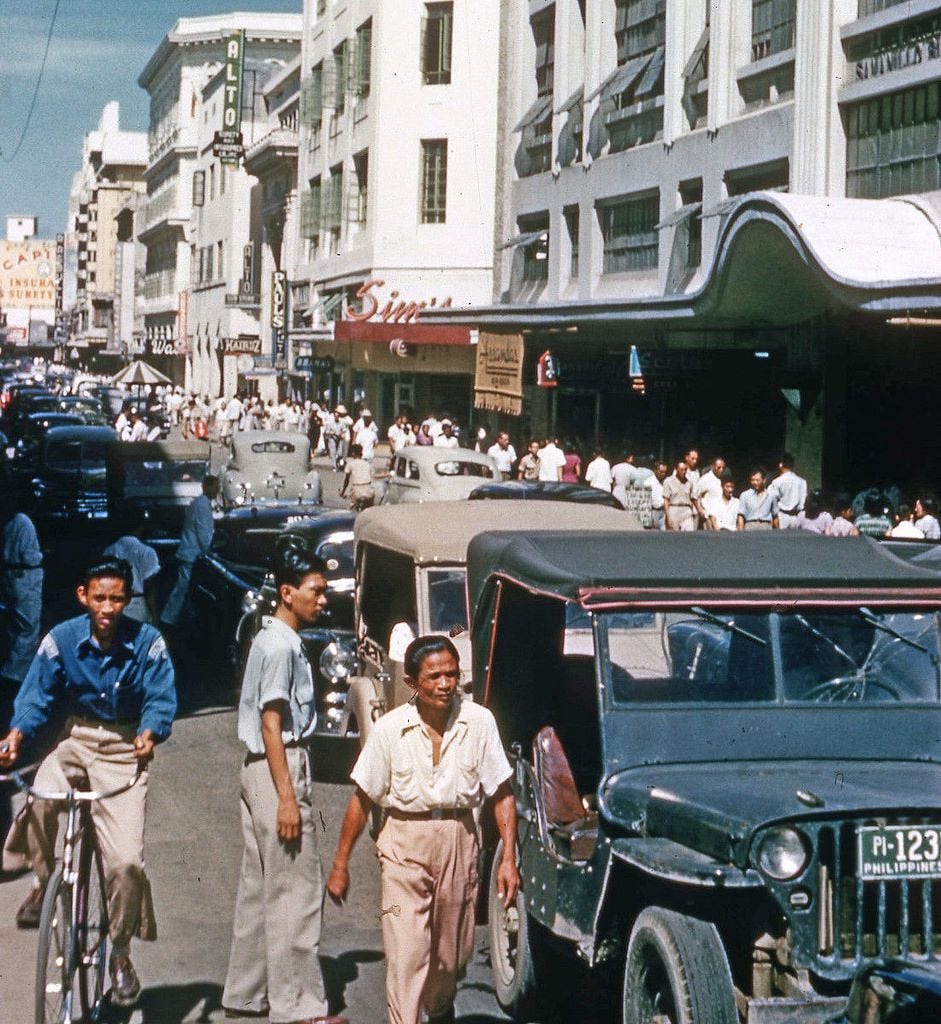Today in history: Frustrations of reform
An intimate look at what Filipinos said off the record in 1950
Lester Knox Little (1892-1981) was an American who served as Inspector-General of the Chinese Customs Service, an adviser to the Ministry of Finance in Taiwan from 1950, and assistant director of personnel for the United States Information Agency from 1955 until 1960.
On this day, February 1, 1950, his visit to the Philippines to try and advise the government on customs reform, began:
Had about 6 hours sleep but routed out of bed before daylight to breakfast at Wake Island. The sun came up as we ate in the little dining room — with which I have become quite familiar. Arrived Guam about noon; lunched there and took off at 2:30. Guam was pretty hot. Several of our passengers left here, and were not missed — especially 3 or 4 young men who came out for the contractors who are working here. These lads started drinking at 8 a.m., and kept it up all day. One of them — an electrician — said he had a swell job: all expenses paid and pay of about $25.00 a day. Time difference between Wake and Manila is 4 hours, so we sat our watches back accordingly. Arrived Manila at 6:45 p.m., Manila time, and met by Senor Jacinto, Commissioner of Customs, and Mr. ? of the E.C.A. staff. Five or six newspaper reporters on hand. To Manila Hotel. No room for me, because President Sukarno of the Indonesian Republic is paying a state visit to Manila. I am in Foster Knight’s room; he is away for a few days.
Read his diary entries from Feb. 1 to 27, 1950 and get an intimate view of what Manila and Philippine officialdom was like, and the frustrations Filipinos freely expressed (off the record) about the difficulty of serving in the government. A good example is his entry for February 5, 1950:
To office and to Custom House a.m. and p.m. Tried to see Jacinto in afternoon, but he was out for the day. Actually, he is trying to avoid the politicos who are trying to save the Customs jobs of their protégés. Talked for over an hour with Sr. David, Chief of the Arrastre Division. He has been in the Customs 25 years or more, and is completely disillusioned and discouraged. He said that the greatest curse in the Customs is political pressure to secure places for friends and relatives. Many men are appointed to places for which they have no experience or aptitudes, and over the heads of qualified long-service career men. He said graft and squeeze are widespread. Low pay is another important factor in the demoralization of the Customs. Although prices have gone up 4, 5 or 6 times pre-war scales, the pay of the higher echelons in the Customs has not been increased. In his own case, before the war he could own a car; now, he cannot afford even an occasional taxi. His two sons have finished high school and gone to work, because he could not afford to send them to college. Pay of the lower ranks has been increased, but not proportionately to the cost of living. He also said that present arrangement whereby the Commissioner of Customs is divorced from control of the Manila Customs while the Deputy Commissioner is collector of the port of Manila, is most unsatisfactory and the cause of constant friction. He recommends that the Commissioner should be ex officio Collector of Manila. (I can see that this question is agitating the entire Customs staff).

